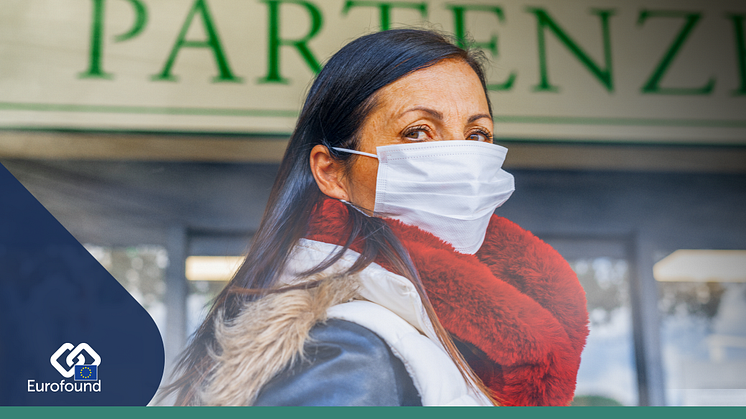
News -
Trust in EU recovers following COVID-19 responses
Trust in the European Union was significantly higher among respondents in the July wave of Eurofound’s Living, working and COVID-19 survey than in April, with average trust in the EU exceeding trust in national governments. This reflects positively on the work of the European institutions during the summer in addressing the COVID-19 pandemic, as very low levels of trust in the EU during the early stages of the pandemic raised fundamental questions about perceived EU action and broader European solidarity during the crisis.
Eurofound’s unique Living, working and COVID-19 research looks in detail at the experiences of citizens in both April, when much of Europe was under heavy restriction, and July, when restrictions had been somewhat eased. The full report details the social, economic, labour market, and quality of life findings of a total of 87,477 respondents across the EU. It shows that while trust in the media, police and healthcare system remained largely stable over the summer, there was a marked decline in government trust in some Member States, and relatively large growth in trust in the EU. This growth in trust is particularly noteworthy considering the consistent decline in EU trust in the aftermath of the financial crisis and onset of the Great Recession.
Trust in the EU, measured out of 10, was highest in Ireland (6.3), Poland (6.2), and Lithuania (5.9) in July, it was lowest in Greece (4.2), Croatia (4.2) and Czechia (4.3). Overall, trust increased from 4.6 in April to 5.1 in July, with significant increases recorded in 13 Member States – most notably Italy (from 4.1 to 5.2) and Spain (from 4 to 5.1). While increases in trust were recorded in southern Europe, a decline in EU trust was noted in Finland (from 6.5 to 5.5), Denmark (from 5.7 to 4.9), the Netherlands (from 4.9 to 4.4) and Sweden (from 5.2 to 4.8). This suggests different national perceptions of changes to European economic and monetary policies to deal with the pandemic during the period.
Trust in national governments was highest in Luxembourg (6.8), Finland (6.5) and Denmark (6.4), and lowest in Poland (2.4), Croatia, Bulgaria and Hungary (2.9 respectively). There were notable increases in trust in the national government in Spain (+0.5), France (+0.4) and Luxembourg (+0.3), but significant decreases in Malta (-1.5), Croatia (-1.2), Finland (-1.1) and Austria (-1.1). The report notes that trust in both the national government and EU was higher among respondents that received support from public services to help with living expenses or household needs.
Speaking about the findings, Massimiliano Mascherini, Eurofound Head of Unit for Social Policies, said ‘Maintaining and improving levels of trust is of vital importance during this pandemic, as trust is a keystone of the compliance needed to control COVID-19. The importance of the improving EU trust that this research demonstrates should not be understated, it sends a clear message that most people in Europe were in favour of coordinated, comprehensive action based on solidarity and common European values.”
More information:
- Full report: Living, working and COVID-19
- Explore the data: Quality of life and quality of society during COVID-19
- Webinar: Sign up now: Being young in the COVID-19 pandemic




